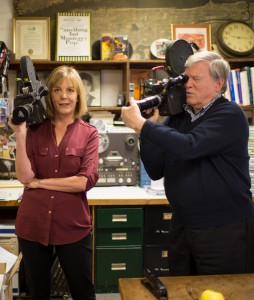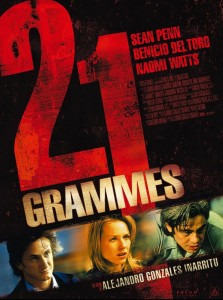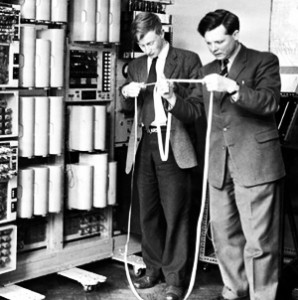by Andrew Einspruch
Filmmaker Andrew Einspruch attended Screen Forever 2013, the conference of Screen Producers Australia, this past year and wrote a series of articles for the event, which he’s kindly allowing us to reprint here. These articles originally appeared in Screen Hub, the daily online newspaper for Australian film and television professionals.
With VOD, catch-up viewing, second screens, time-shifting, cord cutting and all manner of changes looming over the content consumption landscape, it makes sense to ask, as a session did at Screen Forever 2013, “Sorry, Where Has My Audience Gone?” Andrew Einspruch tells us that the answer might surprise.
Let`s cut to the chase. Australian audiences are still couch potatoes. According to statistics shown by Dough Peiffer, CEO of OzTam, the TV audience measurement company, in 2008, the average time viewed (ATV) in the five main cities was 3:08. That`s three hours and eight minutes per person per day watching broadcast TV.
Flash forward to 2013, and the number is smaller, but not a lot — 3:03. So even with all the new technologies, devices and competing media, the amount of time Aussies sit in front of the box has been pretty steady.
Not what you might have guessed. If the question is “where`s the audience gone”, the answer, at one level, is “nowhere”.
Total use of the TV set has actually gone up, even if what is being done with it is in the throes of shifting. Live viewing declined from 2010-11 to 2012-13 from 12.5% to 11.7%. In the same period, playback went from 0.7% to 1.0%. The biggest change is everything else, the “Other Screen Usage” category, which went from 2.9% to 3.8%. This is all the other things people do with their sets, like playing with the XBox, watching a DVD, or streaming from the Apple TV.
So changes are happening, just not at a cataclysmic rate (yet). Take time-shifted viewing as an example, where people watch a show within seven days of the live broadcast. The most time shifted program in 2013 was the final ofPacked to the Rafters, which saw an extra 257,000 people watch the show after the original broadcast, an increase of just under 20%.





 There’s a certain watercooler betting-pool mentality that accompanies the box office results of movies, as though their success were completely encapsulated in a single opening weekend’s results. This despite the fact that everybody knows Hollywood accounting is particularly slippery, that budgets never reveal the accompanying marketing costs of films, that foreign market revenue is increasingly important to the success of many films, and that ancillarly sales can be a primary rather than secondary revenue stream. Nonetheless, we seem to equate box office numbers with whether a film worked, whether it’s worth anyone’s time, and whether it’s going to ruin somebody’s career or save it.
There’s a certain watercooler betting-pool mentality that accompanies the box office results of movies, as though their success were completely encapsulated in a single opening weekend’s results. This despite the fact that everybody knows Hollywood accounting is particularly slippery, that budgets never reveal the accompanying marketing costs of films, that foreign market revenue is increasingly important to the success of many films, and that ancillarly sales can be a primary rather than secondary revenue stream. Nonetheless, we seem to equate box office numbers with whether a film worked, whether it’s worth anyone’s time, and whether it’s going to ruin somebody’s career or save it. 